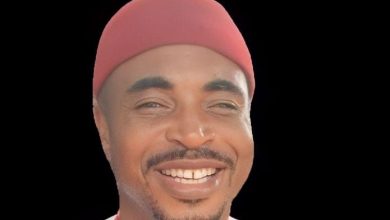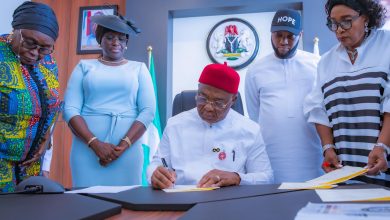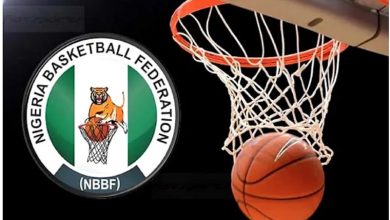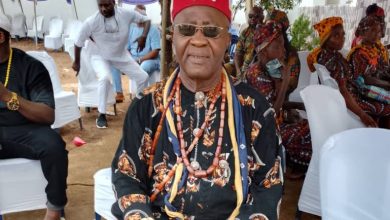Lessons from Athens Olympics that won me medal at Beijing Olympics- Chukwumerije
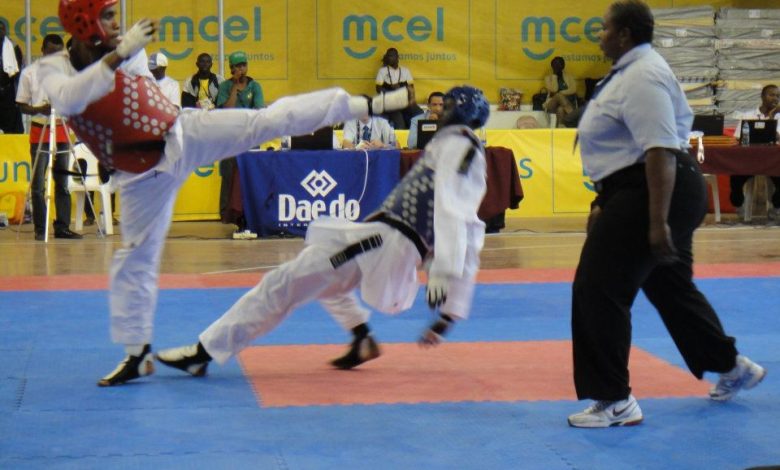
Photo: 2011 African Champion, Uche Chukwumerije, battle an Ivorian en route to clinching the African title at the 2011 All African Games in Maputo, Mozambique
When I stepped into the Olympic ring for the first time at the Athens 2004 Olympics, I lost to a more experienced fighter. He was a knock out specialist and most of his matches usually ended with huge double digit point gap. At the time, he was an Olympic silver medalist and a multiple European champion. My first kick was an axe kick that missed his head by mere whiskers, and the match was very tough. It ended just 2 – 0. I really did go at him.
The only problem was I never knew who he was. Neither my Nigerian coach, nor the foreign coach gotten during the pre-training camp, told me who my opponent was.
We never sat down to watch videos of him or anyone else for that matter. Imagine that! I did not even know there was anything like opponent research & analysis etcetera.
Thus, not knowing the opponent already reduced my chances. I was just 19; fearless, physically fit and eager to go. I needed guidance and knowledge-based training.
Technically and physically, I was on point. But tactically, I never stood a chance, because I did not know ‘the enemy’. Knowing the opponent would not have guaranteed victory, but it would have greatly increased my chances.
Six months after my loss at Athens 2004 Olympics, I scribbled my first ideas for how my preparations for Beijing 2008 Olympics should be.
Opponent research and analysis was amongst the items I wrote down as part of my broader program that involved my physical, technical and tactical preparations. I just knew that if I wanted to make a difference at the Beijing 2008 Olympics, I had to do things differently and prepare differently.
At the time, I was a student at the Federal University of technology Owerri. Mobile phones with high-speed internet were not a thing, so I would hop onto a bus at the weekends from the Ihiagwa village where FUTO was located into Owerri town, and see myself to a cyber café that was at the Aladinma junction, near the popular Maris Supermarket at the time.
Internet was slow, so one hour was never enough. I would end up spending about 4 – 5 hours, browsing videos on various Taekwondo competitors, training methodologies, philosophies, locations etcetera. True, I did this until I graduated from FUTO, steadily preparing for my second attempt at making the Olympic podium.
By the time the Beijing 2008 Olympic came around, I had watched each of my opponents more than 150 times each. It made the most difference in all my matches, but most especially when I defeated the current heavyweight champion at the time, in the golden point round, en route to winning an Olympic bronze medal.
To be honest, he was even more experienced and better than my Athens 2004 opponent, but this time, in addition to being physical and technically more prepared, knowing my opponent made all the difference.
In the “Art of War”, the Chinese Military General, strategist, philosopher, and writer, Sun Tzu summarized it brilliantly as follows:
“If you know the enemy and know yourself, you need not fear the result of a hundred battles. If you know yourself but not the enemy, for every victory gained you will also suffer a defeat. If you know neither the enemy nor yourself, you will succumb in every battle.” ― Sun Tzu, The Art of War
Some Personal Tips
1.Opponent research and analysis is tedious, repetitious and boring. So is being a professional. Get it done.
2. Study your opponent until you find a pattern. When you find the pattern, explore various tactics to exploit the pattern, practise the various tactics during your sessions. Everybody can be beaten, no matter how good they are. You just need to do your homework.
3. Some things to watch out for; physical condition, technical ability, tactical patterns, mental mindset, response under pressure/ stress situations, amongst other things.


